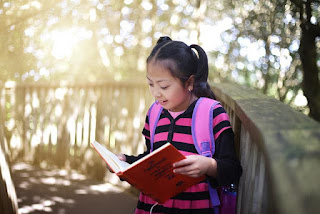According to the Scholastic Teacher & Principal faculty Report, around seven in ten educators say they have supplemental materials to assist them address racism with their students—both the history of racism in America and also the state of racism nowadays. Moreover, seventy three of educators say they have supplemental materials to assist teach students to be anti-racist.
These findings return as no surprise to Dr. Gholdy Muhammad, AN professor of language and attainment at Georgia State University and also the author of Cultivating Genius: AN Equity Framework for Culturally and traditionally Responsive attainment. She recently spoke with Suzanne McCabe, host of the Scholastic Reads podcast, concerning however educators will incorporate anti-racism into their colleges and school rooms. Below ar highlights from their language, that has been altered for length and clarity.
Q: Tell North American nation concerning your book, Cultivating Genius, and also the four learning goals you intend.
Dr. Gholdy Muhammad: Cultivating Genius appearance at Black historical excellence as a model, as a playbook, and as a guide for higher educating youngsters nowadays. I study Black literary societies, that originated within the nineteenth century. These were a number of the nation’s 1st book clubs. people came along to browse, write, think, debate, and build their information and understanding in order that they might strategize and work towards making an improved world.
In my book, I gift a four-layered model, that I decision learning pursuits, not learning standards: identity development, ability development, intellectual development, and criticality. though I don’t mention this as a fifth pursuit within the book expressly, the fifth pursuit is joy. I encourage academics and leaders to deem however you're cultivating these 5 parts with every unit set up, with every lesson set up, with every learning expertise.
Q: Let’s begin with identity development. however would you'd wish to see that applied in classrooms?
Dr. Gholdy Muhammad: Identity matters. Students have to be compelled to see themselves honored, reflected, and valid in teaching and learning before we have a tendency to get to skills and standards just like the Common Core. Identity helps our tykes grasp UN agency they're, UN agency they’re not, and UN agency they need to be—all the various sides and manifestations of themselves. Identity matters as a result of it’s sort of a refuge and a supply of protection. once you grasp UN agency you're, nobody will tell you otherwise. Identity are a few things that builds confidence and shallowness for our students. they must not solely be learning concerning themselves with every science, science, social studies, ELA, and arts-based lesson, however conjointly concerning the lives of others UN agency ar completely different than them. once you grasp the reality concerning folks that ar completely different than you, you're less inclined to hate, you're less inclined to evaluate and stereotype. With each lesson set up, academics ar asking themselves: however can this facilitate my students learn one thing concerning themselves or others?
Q: What question ar you obtaining the foremost from educators in response to Cultivating Genius?
Dr. Gholdy Muhammad: The question i buy most is: “Do I actually have to show all 5 of those pursuits in forty five minutes?” the solution is not any. It depends on however you write the goals. I’ve tutored a lesson in forty five minutes, and I’ve tutored it across period. i need academics to think about themselves as designers and intellectuals and geniuses. deem yourself as a genius ANd an creative person once you write that style, that learning expertise.
I conjointly get queries relating to resistance, particularly with the goal of criticality. Criticality helps our students perceive equity, power, and anti-racism, and serving to them agitate in a very world choked with oppression and hurt and damage.Another question i buy fairly often is: “What if my colleagues or my directors ar proof against anti-racism and criticality as I attempt to connect it to science, science or no matter subject I’m teaching?” i like to recommend teaching the 5 learning pursuits as opposition one ability. That’s additional intellectually rigorous and vitalizing than simply teaching skills or teaching from worksheets or radio-controlled reading books.
This is concerning our humanity. this is often concerning brothers and sisters UN agency ar Black and Brown UN agency ar being killed, whose spirits ar being dead in school rooms, being killed in society for his or her skin colour. we have a tendency to ar in a very state of oppression, wherever we've got a system that has greatly unsuccessful Black youngsters. now's not the time to induce into your comfort zones. this is often not concerning our egos, our feelings. this is often concerning our students’ lives, and I’m not here to sell you their humanity. i'm here to try to to what’s best for all of the youngsters within the category. we've got to be intellectual beings and be able to defend glorious pedagogy.
Q: however did Black literary societies work?
Dr. Gholdy Muhammad: there have been a lot of organized efforts towards an improved humanity and towards human and civil rights for Black of us and for all of us. that they had anti-slavery societies, ethical reform societies, and benevolent societies. If you study Black folks, we've got forever organized and engaged in collectivism to enhance the social conditions for everybody.
Black folks, I notice, were ne'er for the liberation of simply Black folks. They were for the liberation of all. within the late decennium, young Black men, each adolescent and young adult, started what were referred to as literary societies. They targeted on arithmetic, science, history, language, international current events, all forms of arts. They targeted on everything we'd generally teach in colleges nowadays. and that they had anyplace between ten and over one hundred members. The members paid dues, and that they met often within the basements of homes and churches, in school rooms and auditoriums, and any area they might get. after they met, they cultivated their libraries. aside from structure prices, all of the membership dues visited books and libraries.
That was their start line. Members would consider books. once somebody came a book, that they had to administer sort of a mini-lecture on the book. that they had constitutions and by-laws. Black girls had their own societies. And Black men and ladies had collective societies along. As I said, they might simply browse made literature, they might write, they might discussion, they might assume, they might strategize and move to action.
These societies were terribly action-oriented and reformist in their thinking and in their responses to inhumanity. they're simply a gorgeous, lovely a part of our history. sadly, once academics ar in university programs to become academics, they don’t study these societies. Even in attainment programs, they don’t study this a part of history. This history isn’t tutored in social studies categories in K–12. this is often such an unbelievable a part of our history that has given North American nation the blueprint and also the playbook for education nowadays.
Q: however does one envision a replacement approach of teaching our history, abundant of that, like Black literary societies, has been disregarded of the textbooks?
Dr. Gholdy Muhammad: 1st, you have got to know why we've got true we've got nowadays. Everything may be explained through history. Having Eurocentricity, having white in everything, that was designed. it had been organized. similar to abolitionists were organizing, therefore were white of us, traditionally, UN agency failed to wish Black folks, Black histories, and Black liberation expressed within the information. and so we've got to deem free enterprise. folks profit off of the failure of Black and Brown youngsters, together with folks that place out the information.
The analysis has been here for years, therefore why haven’t we have a tendency to designed a information that's culturally and socio-politically conscious? as a result of of us wish to stay profiting, perhaps. as a result of it’s easier. In some ways that, it’s less rigorous. we predict that academics could also be incapable of doing additional. There ar loads of very vital things that require to be addressed around this. however dynamic and extremely good academics ar already acting. They’re either relinquishing or going on the far side the information that the district has adopted. I argue that they shouldn’t have to be compelled to. 1st of all, if I’m a college district administrator, and I’m adopting a replacement arithmetic, science, ELA, or social studies information, it higher be culturally and traditionally responsive, or I’m not paying the cash to possess it tutored in my terribly numerous administrative district. we've got to carry folks that write curricula additional responsible, whether or not it’s business enterprise corporations or districts. we'd like an improved framework for information writing. That’s why I wrote this book. It offers a framework.
We conjointly ought to modification the Common Core State Standards and alternative standards that ar like it. In Georgia, where I am, the standards ar grounded within the teaching of skills. they are doing not replicate the histories, identities, and liberation of Black students. per NAEP knowledge, we have a tendency to ar troubled to induce it right the foremost with Black students once it involves academic action. we've got to start out with the cluster that has been underserved or marginalized the foremost. Is it moral to stay a collection of standards that don't replicate the wants of scholars whose ancestors were enthralled, a bunch of individuals UN agency have not gotten academic reparations? I don’t assume therefore. Reparations will appear as if higher learning standards and higher learning curricula for Black youngsters.
We conjointly would like higher assessments. we'd like to use assessments as they must be used. No additional high stakes, no additional connecting to people’s salaries. It’s merely unfair however we’ve been victimization standardized testing. and also the tests ar mostly culturally biased.
We conjointly would like a unique thanks to appraise and recruit academics. we have a tendency to don’t appraise academics on something however educational success. and so we have a tendency to marvel why we have a tendency to don’t have a social, political consciousness in our colleges. academics say, “I’m not evaluated thereon. Why would I teach it?”
Finally, i'd add that we'd like to enhance teacher education. I’m a teacher-educator operating in a very university, in a very faculty of education. These programs ought to teach additional students and theorists of color. I learned Vygotsky, Piaget, Maslow. I didn’t learn loads concerning Black theorists. I didn’t study any Black theorists UN agency really worked with Black youngsters. The programs making ready academics ought to be culturally responsive. they have to be anti-racist, and that they ought to be grounded in equity. If we start to rework all of those areas, I guarantee you, we are going to have {a better|a far better|a much better|a higher|a stronger|a additional robust|an improved} and more advanced state of education, and that we will definitely have higher action for all students.
Q: ar there alternative resources you'll advocate for educators, or parents, UN agency ar beginning on this journey?
Dr. Gholdy Muhammad: In terms of on-line image books, read-alouds, i like Sankofa Read-Alouds right away. i like the Schomburg Center for analysis in Black Culture. they need digitized images, maps, manuscripts, video, and more. think about a primary supply, like African yank newspapers. i like to dive into them as a result of they’re multi-genre. i like The Brownies’ Book. the complete assortment is obtainable on-line at no cost at The Library of Congress. though you are doing a Google look for Black scientists, Black girls suffragists, Black something, you’ll possible unearth one thing new that you simply haven’t learned before.
All youngsters be these 5 pursuits. I don’t wish any kid to depart K–12 while not ever experiencing authentic joy. Joy are a few things that we have a tendency to all be. academics be it, too.














